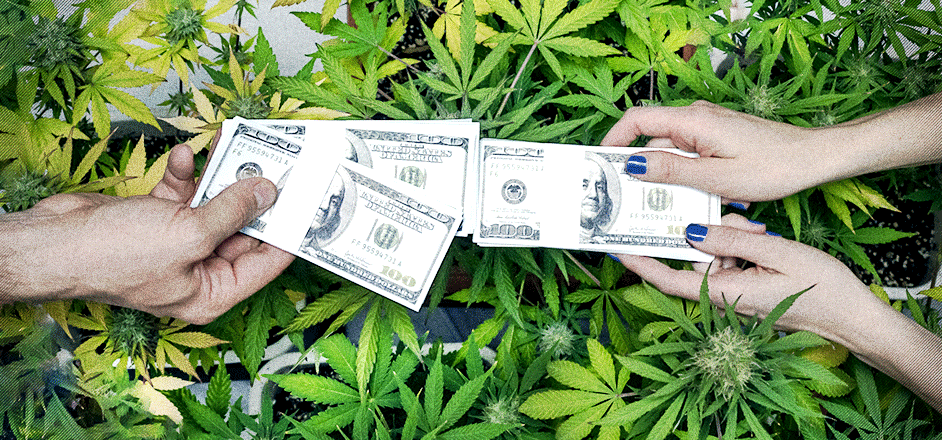At the end of 2019, almost everyone was blown away by how cannabis sales had grown over previous years. Records were broken, expectations were smashed and most everyone was left wondering how much higher those numbers could climb.
Then came along 2020 and — perhaps not surprisingly — 2019’s cannabis sales were put to shame. Just since the start of this pandemic, weed sales in Colorado have far surpassed $1.1 billion, and remain up 25-percent over the previous year.
Why? One might wonder. What about the pandemic could have caused such an insane hike in weed sales?

Well, the obvious answer would be boredom: people were stuck at home with nowhere to go and nothing to do except eat food and watch Tiger King. What better way to kill that kind of down-time than by getting stoned to high hell?
But, according to Jennifer Axcell, one of the founders of Leaf411, blaming 2020’s sales spike solely on boredom would be an oversimplification of the situation. More people are using cannabis medicinally to treat a variety of conditions — many of which have to do with their mental and physical health.
“I think it would be way too easy to just say, ‘oh, yeah, everybody's at home bored with nothing to do and that's why everybody's drinking and getting high,’” she says. “I'm really not surprised at all that we saw that increase … it’s directly related to an increase in stress, anxiety and sleep issues.”
Leaf411 is the nation’s first non-profit toll-free call center for cannabis information, run by cannabis-trained nurses (844-LEAF411). They take calls from cannabis users all over the country, in legal and illegal states, all year round. They answer questions about products, dosages, effects, medicinal uses and just about any other cannabis-related topic you can think of.
By nature, they talk to a lot of cannabis users — but once the COVID-19 pandemic hit, their call volume doubled almost overnight. Their phones surged with questions about marijuana, and their nurses were scrambling to answer them.
At first Axcell says the calls were about sanitizing products after purchasing them, and how someone might contract COVID from packaging or product. But as the pandemic wore on, the questions they were being asked started to take on different forms.
“As we all learned more about this virus and it just kept dragging on and on, we started to see the calls change,” Axcell says. “We started to get a lot more people calling in about their anxiety, calling about depression, calling about suicidal tendencies.”
People were reaching out to them to learn about how cannabis can manage anxiety, treat sleeplessness and generally ease their nervous tensions. People were struggling, suffering from mental health issues — and the fine folks at Leaf411 were there to answer a lot of their questions.
And, Axcell adds, a lot of the people calling in are canna-curious first-time users. She says that the senior population is one of their biggest user-bases and accounts for most of the inquiries they get about first-time usage. Many seniors are looking for alternatives to pharmaceuticals, or need advice on how THC or CBD might interact with the other medications they’re already taking, explains Axcell.
But, Leaf411 has also recently got a lot of questions from parents, she notes — adults who are now stuck working at home, with their kids on a zoom-class-call, who need something to take the edge off.
“With all these new consumers … it's really important that somebody is helping guide them.”
For all of these reasons and many others, people across the state were turning to cannabis en masse throughout 2020. New patients were experimenting, while many veteran patients were upping their intake. And the result was a drastic spike in cannabis sales. Just in 2020 (and, notably, just between January and October) over $1.8 billion of cannabis was sold in Colorado — over $100 million more than in 2019. Between May and August, monthly sales averaged $209 million.
Colorado wasn’t alone, either: that trend was echoed in both Illinois and Oregon, which also had record-breaking sales last year.
And THIS year is poised to be even better. Throughout Colorado, a handful of towns are just beginning recreational or medical marijuana, and many others will soon be voting on whether or not to approve marijuana delivery services.
Considering it still might be a while before people’s anxieties and stresses abate, it’s a good thing we have legal cannabis right now. It’s a medicine that’s uniquely suited to managing many of the most common mental-health issues plaguing our communities — and one that’s proving to be more lucrative than anyone could have predicted pre-COVID.



Leave a Reply
You must be logged in to post a comment.